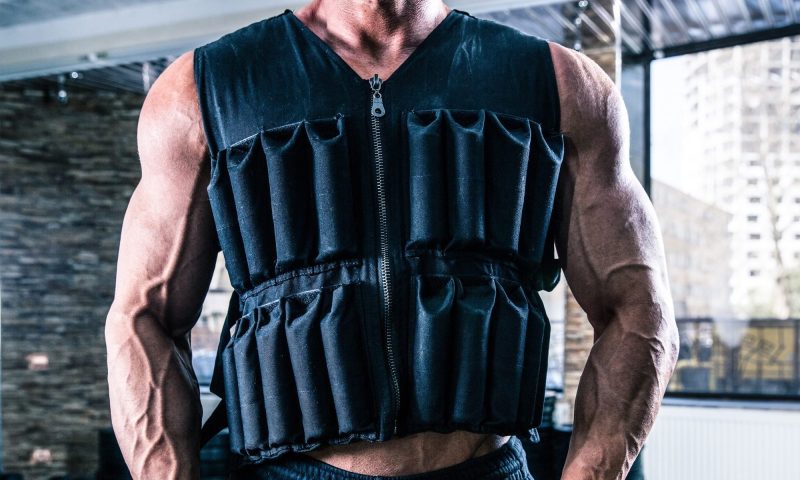Several factors influence body weight and weight loss, including hormones, diet, nutrition, stress, and gut bacteria. Researchers have found a link between obesity and the gut microbiota, which refers to the bacteria present in the stomach and intestines. Research also shows that exercise promotes weight loss and improves body composition over time. We hear about numerous products and supplements with bold marketing claims about how they accelerate weight loss, and it’s difficult to distinguish between what works, what’s evidence-based, and what’s simply hype and hearsay.
Recently, researchers explored whether wearing a weighted vest during weight loss could influence long-term weight loss maintenance. In other words, does wearing a weighted vest while you’re actively losing weight and taking part in a weight loss program promote more sustained weight loss over time and even years later? Let’s delve into the research.
The study

In a study published in the International Journal of Obesity, researchers sought to investigate the effect of wearing a weighted vest on metabolism. Does this tool help prevent the typical dip in metabolism that fuels weight gain and makes you put that weight back on in the future?
18 older adults with osteoarthritis and obesity were enrolled in a 6-month weight loss program involving dietary counseling and meal replacements. Half of the adults were categorized into the weighted vest group and wore a weighted vest for up to 10 hours a day, progressively increasing the vest’s weight until it matched the amount of weight the participant had lost. The participants in the weighted vest group wore the weighted vest for the entire 6-month duration of the weight loss program. The other half didn’t use a weighted vest.
Researchers checked back one and a half years later to measure participants’ metabolic rate and body weight.
The results

The researchers concluded that:
- During the first six months when participants were enrolled in the weight loss program, both groups lost about the same amount of weight, which was around 10-11 kg.
- When the researchers followed up one and a half years after the weight loss program had finished, the non-vest group that didn’t wear the weighted vest had regained all of the weight they had lost. However, the weighted vest group only regained about half of the weight they lost, showing a more long-term, sustained weight loss.
- The group that didn’t wear the weighted vest had a much more significant drop in resting metabolic rate compared to the weighted vest group.
The researchers theorized that the weighted vest could have helped prevent participants from regaining all the weight back by affecting their metabolism. The vest group had a much smaller metabolic dip.
Tricking your body

The researchers discuss how the weighted vest makes your body think it’s heavier, which affects your body’s gravitostat or weight-sensing system. This internal system helps regulate your body weight and metabolism. Tricking your body in this way could be what impedes the expected metabolic slowdown associated with weight regain, but more research is needed.
The takeaway

Although this is a small study involving only 18 older adults, it aligns with previous research indicating that weighted vests can promote weight loss. Interestingly, this study revealed that wearing the weighted vest could help you keep the weight off a year or two later, even after you stop dieting and stop wearing the vest. For this study, the ‘weighted vest’ group wore the vest only for the first six months while participating in a weight loss program.
With studies highlighting the difficulties and challenges of long-term weight loss, it’s interesting to learn about potentially helpful tools that not only help you lose weight in the first place but also keep it off in the future, when it often starts creeping back as the diet is left behind. That being said, it isn’t really the most feasible option for most people to wear a weighted vest for hours every day. The good news is that research also shows that putting on a weighted vest for your workouts could ramp up your energy burn by 40%, which could be more doable for many.



